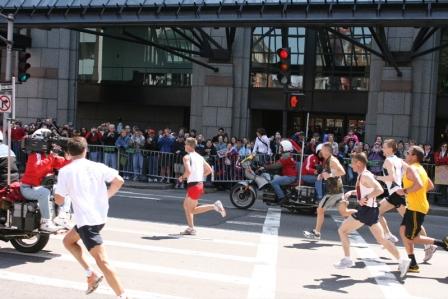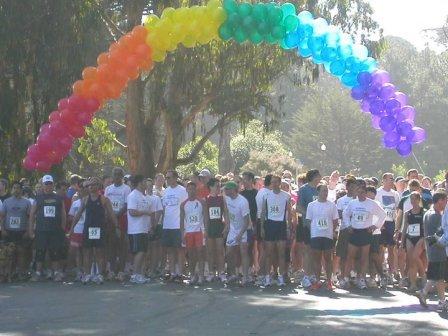
Cheating happens in all types of races; however, marathons seem to be a prime target of cheating runners. Perhaps this is because the long distances make it easier to cut the course, the high prestige of doing well in these races, or the large size of participants which makes it easy to blend in the crowd. Whatever the reason, the fact is, there have been and always will be people who try to cheat in marathons.
The most famous marathon cheater, Rosie Ruiz, cheated is the most famous race, the Boston Marathon, in 1980 by riding the subway and running the last mile to the finish line. She was able to break the tape, be awarded her medal for being the top female finisher, and be interviewed by reporters. Those are some great incentives to cheat. More recently, the fitness group and charity partner of the Marines Corp Marathon, JeansMarines admitted to helping at least eight of their participants cut the marathon course so they could reach their goal of getting from the couch in January to finishing a marathon in October. Personally I think they should have just stayed on the couch rather than cheat. However, JeanesMarines helped them cheat because they wanted to help their clients achieve their goals in order to continue to conduct a successful business. Perhaps another runner’s goal is not to merely finish a race but to run fast enough to qualify for a larger marathon such as the Boston Marathon. Take Hassan Ibrahim for instance, the University of Minnesota physician who had run the Twin Cities Marathon numerous times without being able to qualify for Boston. So he gave his race bib number and timing chip to a friend who could run a faster qualifying time. Then Hassan used that time to register for the Boston Marathon in his own name before race officials found that he had cheated in the Twin Cities Marathon. Cheating seems counter-cultural to people who typically run marathons. So why do people cheat in races?
It could be to gain monetary winnings or to simply gain respect from family and friends; however, the incentives for people to cheat should not be the question, but rather, ‘How can race officials provide incentives for runners not to cheat?’ Every system will be gamed, it is more important how race officials develop incentives for runners to not want to game the system.
Before the race, race officials can use race bibs that are difficult to alter. Use of holograms or other intricate graphic designs on race bibs will deter potential cheaters from fabricating their own race bib in order to have a lower seeded number. Also, race officials should monitor online exchange websites like craiglist for people trying to sell their race bibs. Race officials can contact these sellers and remind them the rules and regulations of bib transfer for their race or take further action.
Once the gun sounds and the race begins the best way to deter cheaters is to place timing chip locations throughout the course in undisclosed locations. In order to be a cheater you must think like a cheater. Think about where someone may try to cut a loop short by running down a side street or an easy entry and exit point for a cheater to use undetected. Once you determine possible course cutting locations, place the timing mats. Also, place race officials as snipers close to these entry and exit points to monitor runners. Place snipers as high as possible above the race course armed with high strength optical lenses. These snipers will be able to view the race course undetected as runners are focused on what is in front of them and very rarely look up. Lastly, go old school and set up video cameras in addition to the normal race photographers at different spots on the race course. Although, RFID tag mats are the most efficient way to catch cheaters, video is often needed to deter against runners running in other people’s race bibs to attain qualifying times. These runners cross every tag mat but only pictures will tell who really ran the race.
It’s difficult to understand why exactly people would cheat in a marathon. These runners are first cheating themselves but are also cheating everyone else in the race who did the training and worked hard to accomplish their goals. Race officials can’t stop people from being cheaters, but they can deter runners from cheating in their races. Cheaters never win, well, maybe initially Rosie, but eventually they’ll be caught.










